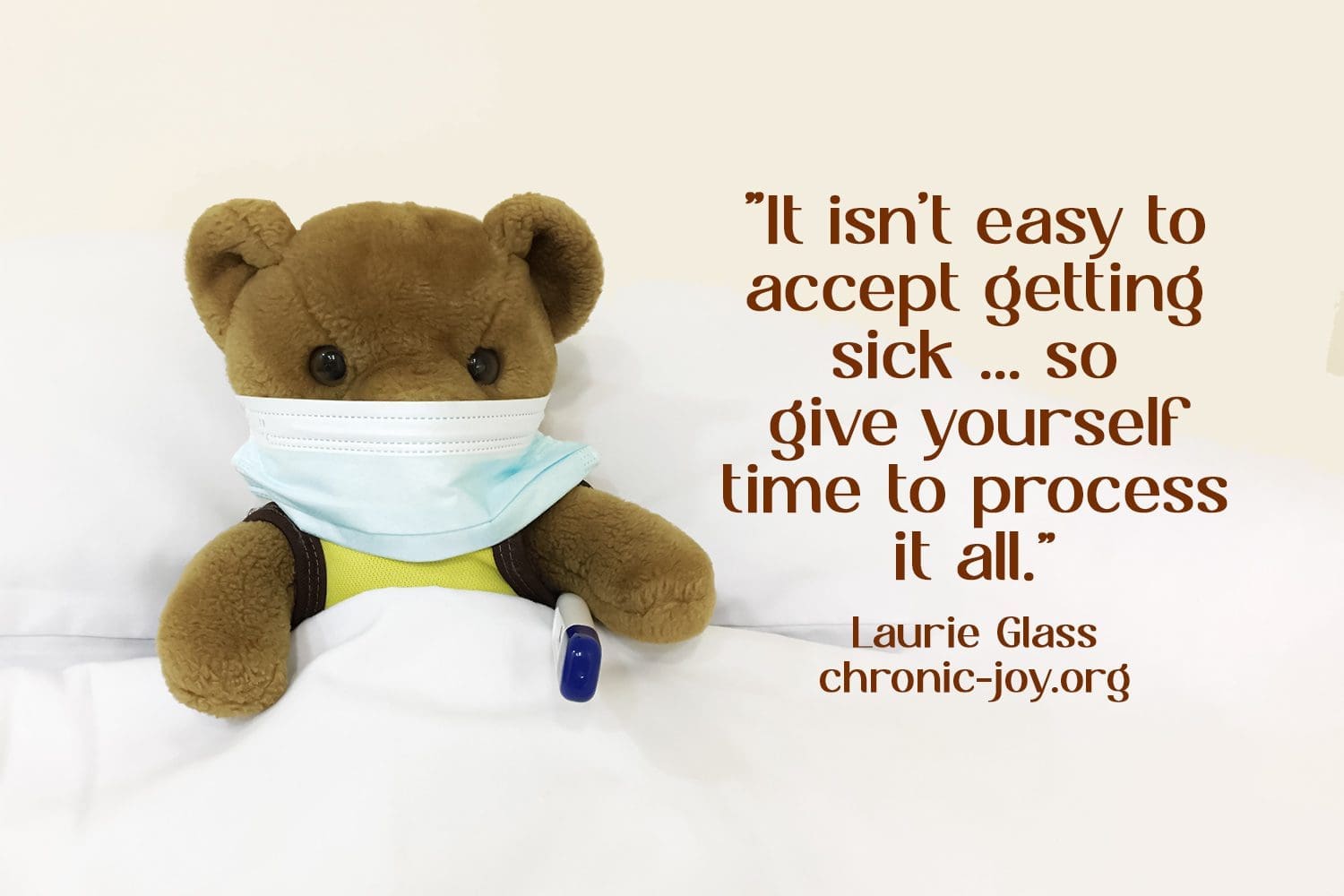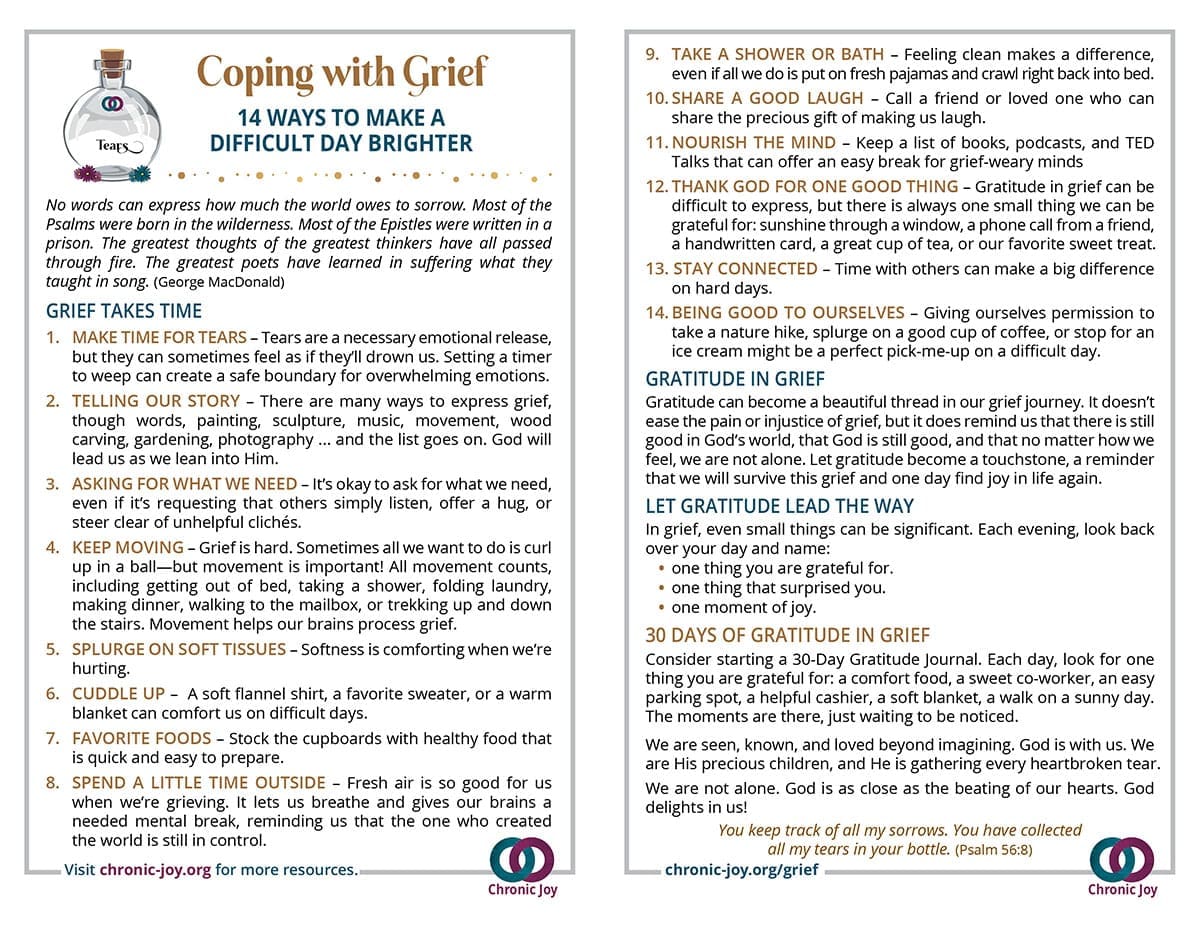
”It isn’t easy to accept getting sick … so give yourself time to process it all.” Laurie Glass
For the Lord comforts his people and will have compassion on his afflicted ones. (Isaiah 49:13b)
ACCEPTING AN ILLNESS
It isn’t easy to accept getting sick. A disease can quickly change your present life as well as your future. It may derail you in many ways, leaving you to scramble around and figure out how to manage each day as it comes. It may also appear to have stolen what you thought your life would be like in years to come. It’s a lot to take in, so give yourself time to process it all. To start, it might help to consider what acceptance does and doesn’t mean.
WHAT ACCEPTANCE DOES NOT MEAN
Accepting an illness doesn’t mean you give in to it. You couldn’t have prevented this, and it isn’t your fault. You didn’t get sick because you “let” it happen.
Acceptance doesn’t mean you’ve given up. You don’t have to stop managing your symptoms, trying to get better, or hoping there will be better treatment available someday.
Accepting a disease doesn’t necessarily mean you’re okay with being sick. It doesn’t mean you chose to be, nor want to remain, sick.
WHAT ACCEPTANCE DOES MEAN
Accepting an illness means you acknowledge that you became sick, your life has changed, and it may be permanent. It also means you’re contemplating how you’ll manage, as well as move forward in some way.
Acceptance means that you may have unanswered questions. Certainly, it’s reasonable to wonder why this happened to you, and it’s natural to seek answers. It’s okay to be candid with the Lord regarding anything you think and feel. Let Him meet you where you are. Then recognize that He may or may not provide the specific answers you’re seeking, but that He still keeps your best interest at heart.
You might think of it as a time to stretch your faith, so you can rest in trusting that He understands what is best to reveal now and what is best to show you in the years to come. Watch for the silver linings and opportunities He brings your way. They may not directly answer your questions, but they may help you better accept your situation.
No one knows the future, so there’s no telling what may happen as far as enhanced research, medical breakthroughs, or what God may have in mind for your health down the line. Things may change someday, but for the present, perhaps you can save yourself some frustration if you accept the way things are today. For now, focus on what you do know as well as what you can do to take care of your body the best you can.
ACCEPTANCE TAKES TIME
Acceptance takes time. It’s part of the grieving process, the part that ushers you from the past to the future. It’s like a bridge between grieving and moving forward. It may not be an easy bridge to cross, but it can be healing to do so. The future may appear less bleak, and you may even have a sense of hope that there is some way to manage going forward that is better than you originally anticipated. God is still present; His promise to never leave you remains. Open your heart to whatever direction He provides. There’s no one better to lead you forward.
AN INVITATION
As you navigate the grieving process, you may find the Coping with Grief printable helpful. It includes 14 Ways to Make a Difficult Day Brighter.


Laurie Glass
Staff Writer
Laurie has a Master's Degree in Christian Counseling and is the author of Coping with ME/CFS. Many of her poems and articles have been published in print and online. She won the Open Medicine Foundation poetry contest in 2019. Laurie loves to use her gift of writing to encourage others. Her book is available on Amazon.

Coping with Grief
14 Ways to Make a Difficult Day Brighter • Grief is a journey requiring steady sips of hope, plates filled with God’s unbroken promises, the comfort of community, replenishing rest, and fresh air and sunshine.

Recent Comments